How to Deal with Winter Wolf Syndrome in Wolf Dogs
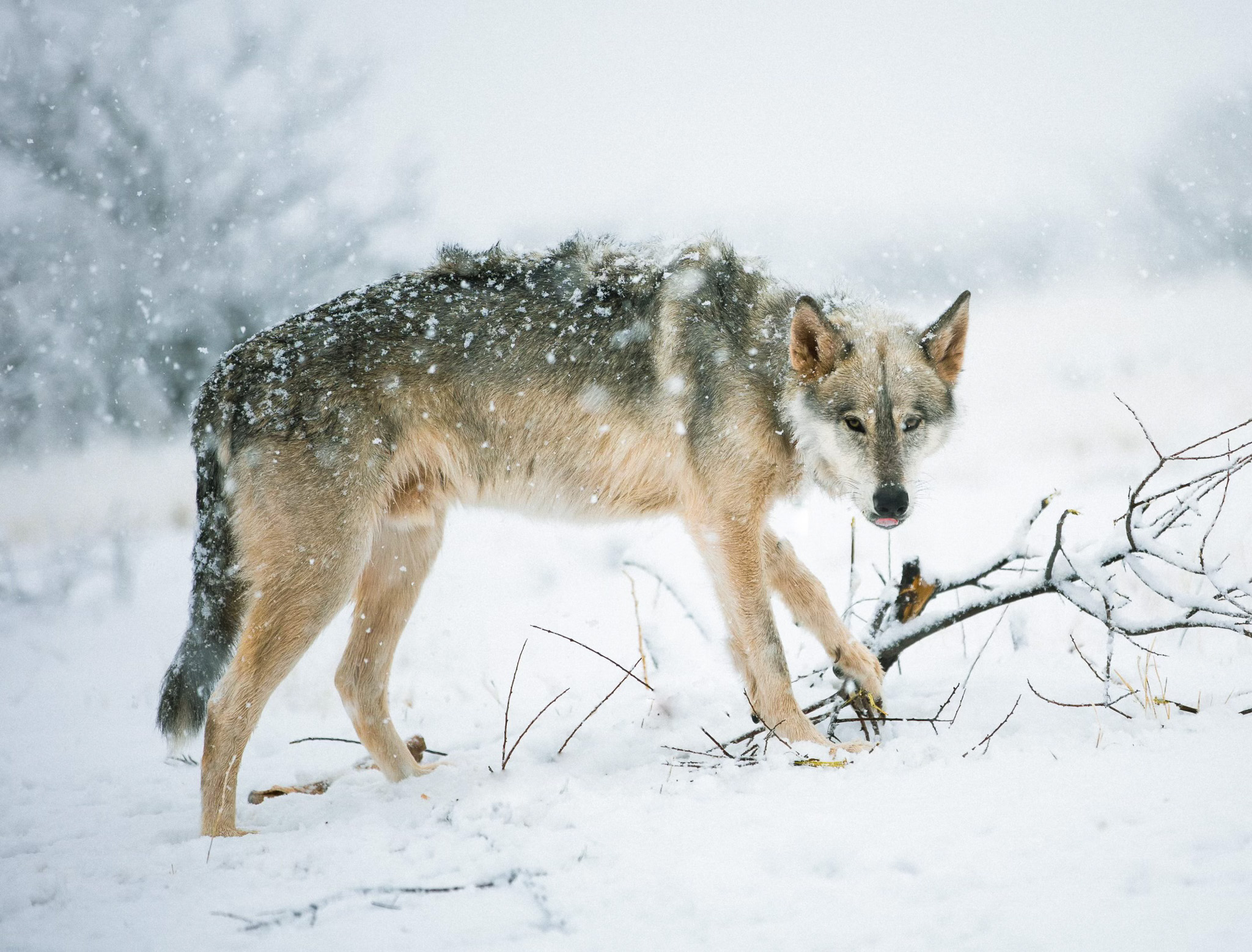
Peer reviewed by: Lori Wynn, Guardians of the Wolves
Winter Wolf Syndrome is a term that gets thrown around a lot, especially in the world of wolf dogs. But what exactly is Winter Wolf Syndrome? And is it something that only wolf dogs experience? Let’s take a closer look.
Table of Contents
ToggleWhat Is Winter Wolf Syndrome?
So, what exactly is Winter Wolf Syndrome? As the name suggests, this phenomenon occurs when the days grow shorter, and the weather turns cold, triggering a surge in hormones in wolves, signaling that it’s time to start mating. Simply put, it’s a term used to describe the intense seasonal behaviors of wolves when they reach sexual maturity.
Winter wolf syndrome is only in males, as breeding season nears their testicles begin to drop and the hormones for breeding will come in, some can show aggression during this time and some not at all.
So How Does That Apply to Wolf Dogs?
Winter Wolf Syndrome is a condition that is common in wolf dogs and can affect high-content and some mid-content wolf dogs, but it does not apply to low-content wolf dogs. As the canine gets farther away from wolf, the general rule is that it gets farther away from Winter Wolf Syndrome behaviors. The syndrome is characterized by a change in behavior, which can include increased aggression, grumpiness, posessiveness and/or destructiveness.
Understanding the Biology of Winter Wolf Syndrome
For wolves, the breeding season begins in winter or early spring (between October and March), when the days start to get shorter. This decrease in daylight triggers the release of hormones in both male and female wolves. Upper content wolf dog only breed in Feb through early April.
Males: Male wolves will have an annual testosterone surge when their testicles drop in preparation for the winter breeding season. In contrast, male dogs do not experience this annual surge; instead, their testicles descend around 6 months of age, allowing them to breed year-round. This difference in the breeding cycle is due to the domestication process; as dogs were domesticated, they lost the annual testosterone surges that are characteristic of their wild ancestors. As a result, domestic dogs do not exhibit the same behaviors as wolves during the breeding season.
Females: It’s a common misconception that female dogs have the same breeding cycles as wolves. Female wolves will only mate once per year, while most female domestic dogs will go into heat twice. In female wolves, the breeding hormones gonadotrophins and FSH are prompted by shorter daylight hours. In some female wolves, this aggression may be directed towards other females who are seen as competition for mates.
Behaviors You Can Expect
- Your once sweet, lovable animal will start to avoid you or ignore you completely when you try to interact with it.
- When you approach your Wolf dog, it might lift its lip or show its teeth.
- Your wolf dog might growl at you if they feel threatened.
- You may notice your Wolf dog becoming defiant/less willing to obey.
- Your wolf dog might become more aggressive toward other dogs of the same sex.
- Your wolf dog may become more possessive of belongings such as a bone, toy, or mate.
- Generally, if spayed you will not encounter this, perhaps a little grumpiness or depression or no changes at all.
How Long Will It Last?
Fortunately, Winter Wolf Syndrome is usually only temporary, and most wolf dogs will return to their normal selves after the mating season. However, some wolf dogs may be more affected than others, and the higher the wolf content of a wolf dog, the more intense the behavior may be.
Does Getting Them Spayed/Neutered Help?
While there is no guarantee that spaying or neutering will completely eliminate these symptoms, it can often help to reduce them. By spaying or neutering a wolf dog, it is possible to reduce the levels of testosterone and other hormones in the body. This may help to decrease the chances of winter wolf syndrome developing.
However, it is important to note that some wolf dogs are more sensitive to anesthesia than other breeds, so I recommend you choose a vet carefully if you decide to pursue this option. Only use the greyhound protocol for sedation.
Our Personal Experience
We have a four-year-old male wolf dog named Cruze. The first time we experienced winter wolf syndrome came as a bit of a surprise. As winter approached, we started to notice that Cruze was acting differently. At first, we weren’t sure what was going on, but then we realized that he was experiencing something called winter wolf syndrome. All of a sudden, he started to act differently around men (even my husband, Jake). He became grumpy and would growl if any of the men in our family tried to pet him or get too close. He was still okay with me and other females touching him, as well as our other spayed female husky and neutered male lab/pointer mix. Around March, he started to return to his normal self.
When we got Cruze, we knew that we would need to have him neutered at some point. However, we also knew that it was important to wait until he was the right age. We didn’t want to put him through surgery too early, as that could interfere with his growth and development. So, we waited until he was around two years old and then took him to a reputable vet who has operated on wolves and wolf dogs from our local wolf sanctuary. The surgery went well, and he no longer displays any winter wolf syndrome behaviors.
Want to know how much Wolf DNA is in your Wolf Dog?
If you’re struggling to understand your wolf dog’s behavior this winter, consider getting an Embark DNA test. This simple test can provide invaluable insight into your pet’s ancestry and genetic makeup. Armed with this knowledge, you’ll be better equipped to understand your wolf dog’s needs.
Embark is a Dog DNA Test that screens for over 200 different dog breeds, including wolf dogs. It also tests for 170 genetic diseases and traits. The test is simple to do at home – just swab your dog’s cheek with the provided swabs, register the kit online, and mail it back in the provided pre-paid envelope. You’ll receive your results in 2-4 weeks.
Winter Wolf Dog Syndrome Final Thoughts
I hope this blog post has helped you to understand why your wolf dog behaves differently as winter approaches. If you would like more information about wolf dogs, please check out some of my other blog posts.
If you have any questions about wolf dogs or want to share your own experiences with them, please feel free to leave a comment below. I love hearing from my readers and getting their perspectives on this unique breed of dog.

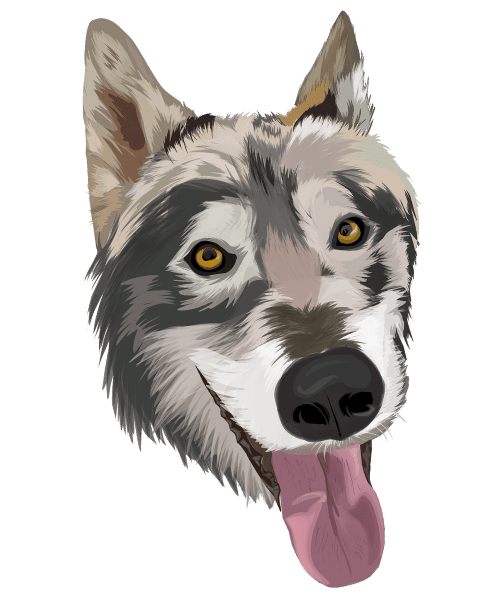
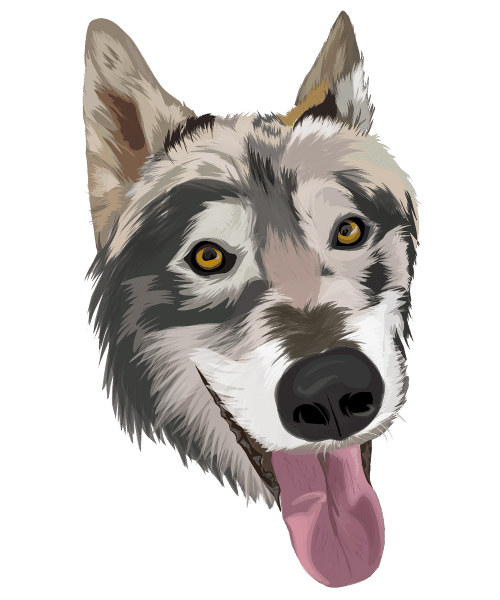
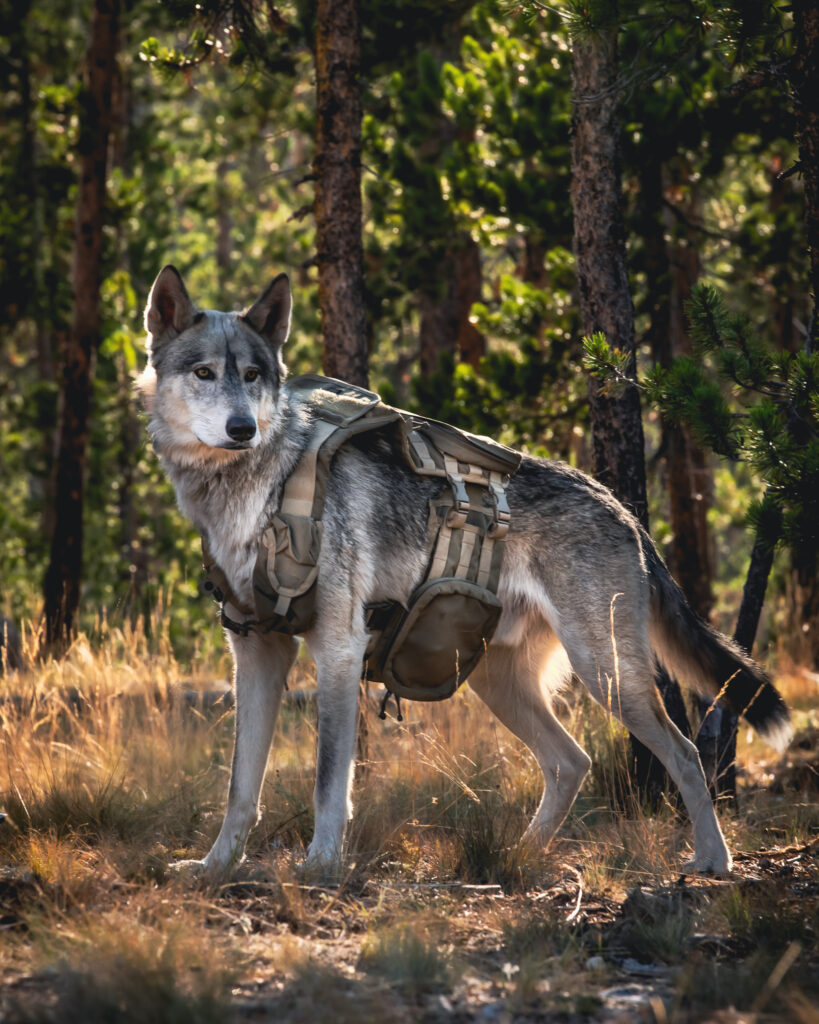
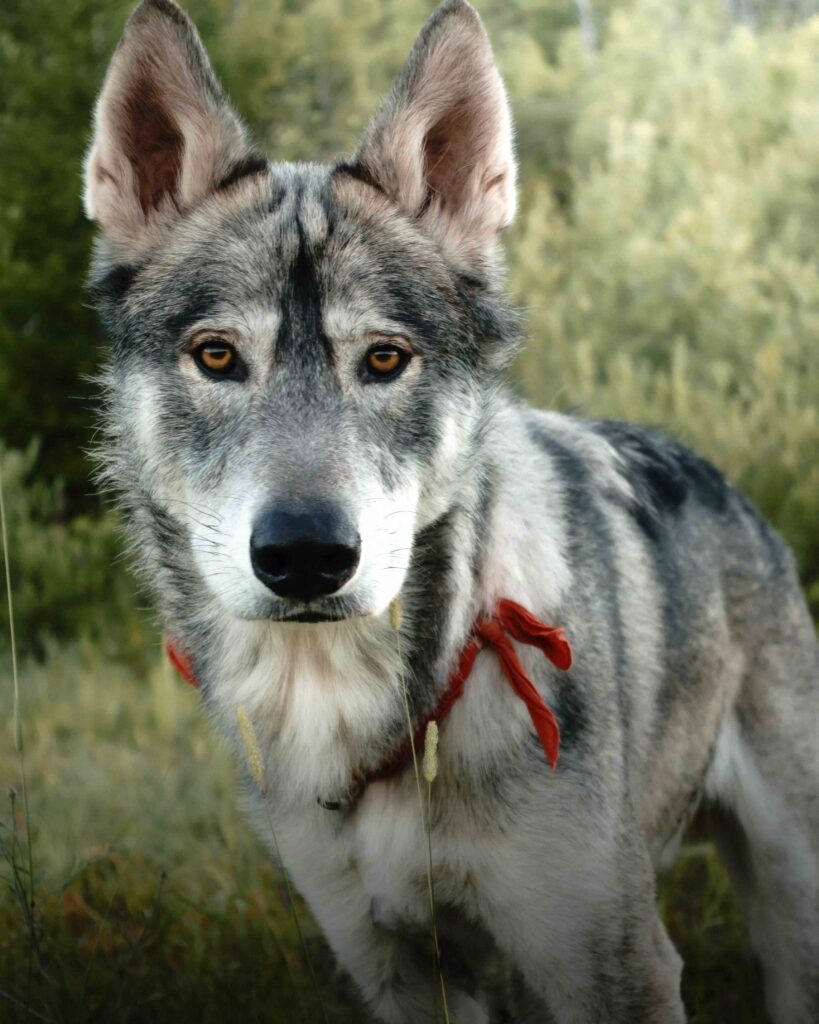

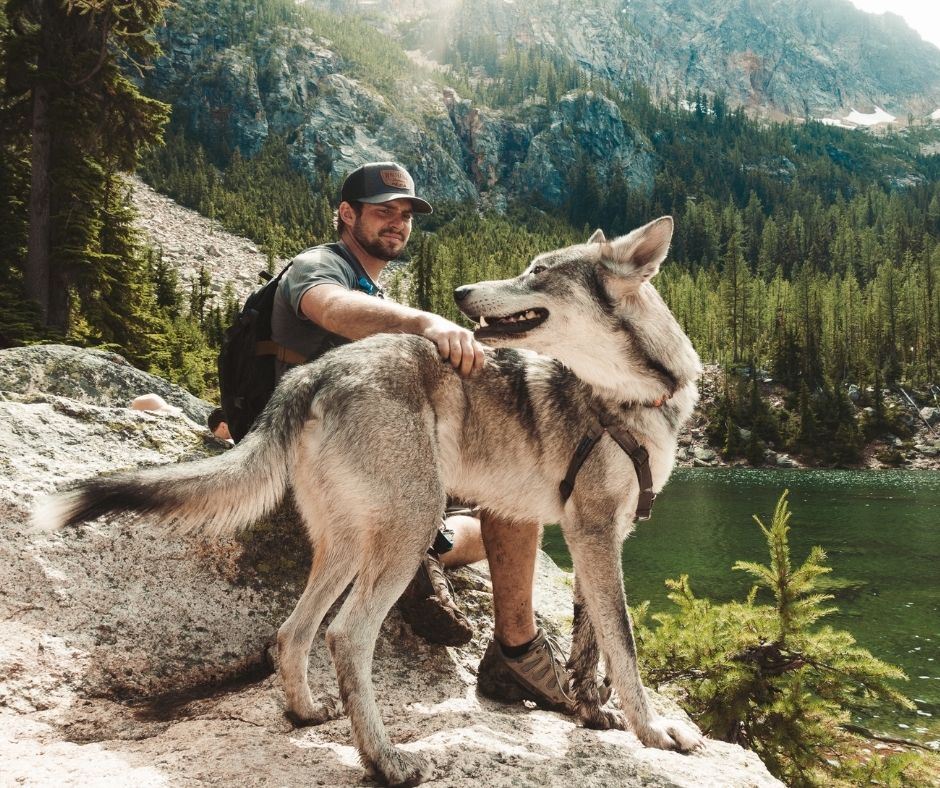

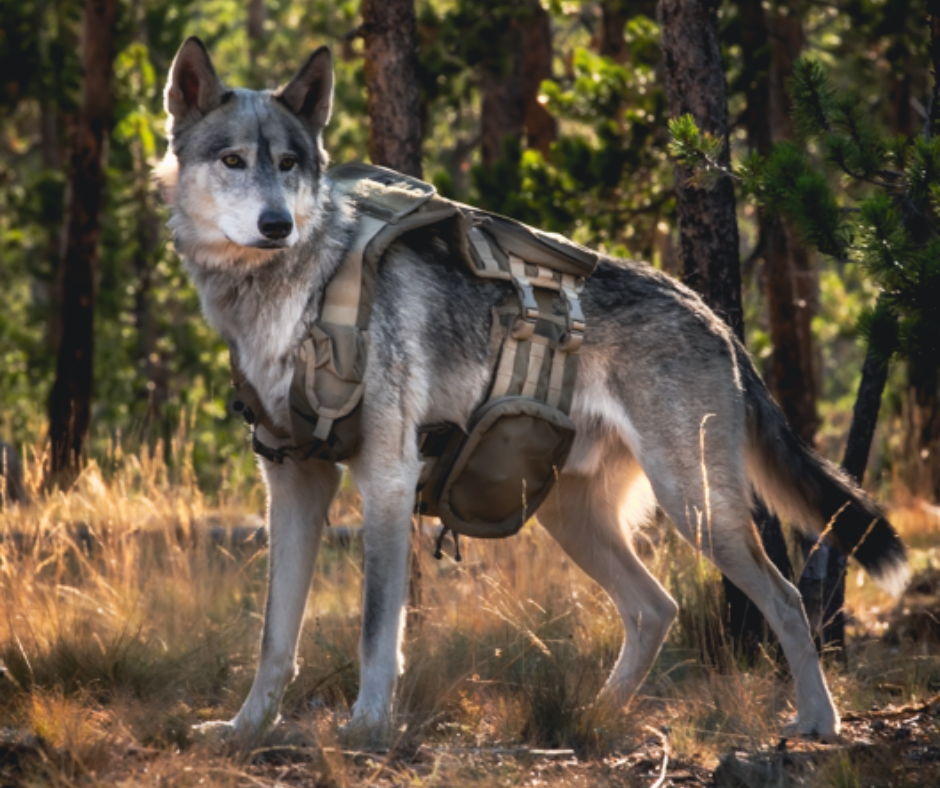
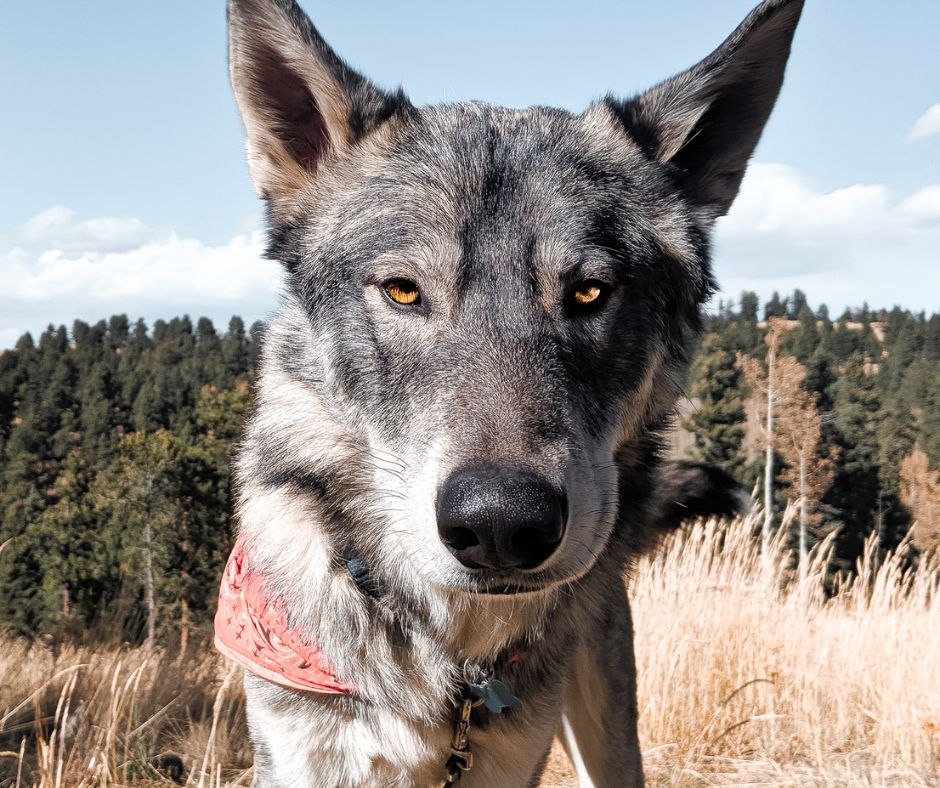
Thank you. Mine is being a little stinker. And now I see why. Appreciate the information.
Hi my name is John I live in Oregon my wolf titan is going thru wolf syndrome I went moose hunting for 15 days came home and he started showing his teeth and growling at me all the time I’m scared off him now ; we were so so close so I’m going to go get him fixed real soon he’s 68 percent wolf; 16 percent German Shepard ; and 16 percent huskey sure hope fixing Titan will p him be loving to me again
Hi John! Yes winter wolf syndrome can be a very scary thing at first! Best thing you can do is give him space. It will only be temporary and he will return to his normal self once the breeding season is over! I would consider getting your wolf pup neutered. Cruze did not have any WWS the last two years and has been very enjoyable to be around. Our advice- find a reputable vet who has worked with WDs and wolves. They are very sensitive to anesthesia. Let us know how it goes!
Hello, very nice article! My puppy is 42.1% wolf. He is already very difficult to handle. We rescued him from his first home where he was being abused. Do you think my dog is at risk for wolf syndrome?
We did a chemical castration at the age of 8 months but it doesn’t seem to work, his testicles are not shrinking. A surgery is planned for next year. He is currently 10 months old.
Hi Sin! Yes, the puppy phase is the hardest! It gets easier with consistency and training I promise! Sounds like your pup is on the low-content spectrum of wolf dogs so it is possible he may not have winter wolf syndrome at all. I’ve never heard of chemically castrating a WD, I would go to a specialized vet who has worked with wolf dogs and wolves and ask for the greyhound protocol. They can be very sensitive to anesthesia. Good luck! Let us know how it goes!